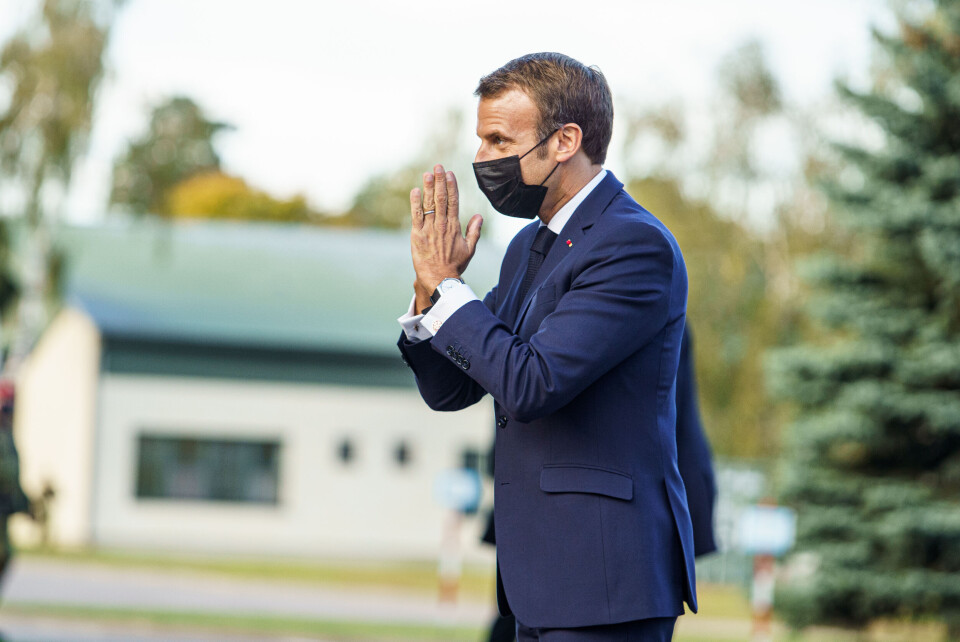-
New Paris-Jersey direct flight to launch this summer
Loganair route forms part of Channel Island’s tourism boost plan
-
Death of right-wing protester in Lyon sparks fears of further political violence
Quentin D, 23, died after reportedly being ambushed by far-left activists near site of political conference
-
Red flood alerts continue in south-west - and more heavy rain expected
Garonne river is particularly affected. French weekly weather forecast February 16 - 20
Economists heap praise on France for its Covid tactics
‘Whatever it costs’ approach ‘was a risk that paid off’ says Nobel-winning economist Paul Krugman

France has been acclaimed as the global star of the Covid pandemic by a Nobel-winning economist for its unique strategy to weather the crisis.
Princeton emeritus professor of economics and international affairs Paul Krugman paid particular praise to France’s efforts to keep people in employment and to provide childcare.
His comments were supported by French and British economists who told The Connexion that France made the right choices to keep its economy strong through the challenges of Covid-19.
Dr Krugman, in The New York Times, hailed France as arguably doing better than any other advanced economy in limiting the economic damage caused by Covid.
The country had particularly done “astonishingly well” in keeping the percentage of people of prime age (25-54) in employment, he said.
It had not only avoided the “huge plunge [in employment]” that was seen in the US – though it has since partly recovered – but had overtaken pre-pandemic levels.
The key had been subsidies to businesses to keep furloughed workers on the payroll, he said.
“It kept workers connected to their employers and made it easier to bring them back once vaccines were available.”
At the same time, its universal childcare provision, which reopened for business fairly early in the pandemic, as did schools, helped to free parents to return to work, Dr Krugman said.
His view echoes that of French Finance Minister Bruno Le Maire, who told MPs in December that the country had the best economic figures in the eurozone, adding: “We got back to pre-crisis levels of activity three months earlier than expected.”
GDP had returned to 2019 levels by the end of last year, according to state statistics body Insee.
Xavier Jaravel, an associate professor at the London School of Economics, agreed that the economic situation looked good for France.
The ‘whatever it costs’ strategy
“The response to the crisis was strong enough to prevent GDP from falling and not going back up,” he said.
He agreed that a key part of this was President Macron’s decision to help firms keep employees who were temporarily laid off.
“It was the right move, even though ‘partial unemployment’ payments cost €35billion during lockdowns”, he said.
France says its Covid support measures cost €240billion by the end of last summer. President Macron’s measures contributed to taking French debt 20% higher, to 116% of GDP.
Prof Jaravel said this could pose some difficulties in coming years in managing the debt.
He did not expect any austerity measures to be imposed, as government revenues would rise along with continued economic recovery.
Xavier Timbeau, director of the French Economic Observatory, said: “Krugman makes the French welfare system the pillar of his argument.
“But it was the ‘whatever it costs’ strategy put in place during the crisis that made the difference from other countries.
It was a calculated risk that paid off.” However, the governor of the Bank of France sounded a note of caution, saying France cannot afford new tax cuts, nor new spending at this stage.
Unemployment down to 7.5%
France’s economic performance has been good for several years now. Since 2017, when Mr Macron assumed office, more than 143,000 jobs have been created by foreign investors in 5,300 projects, according to Business France, a government agency which helps foreign firms set up.
In January, at the annual Choose France summit, foreign investors including Ikea and Pfizer confirmed another 21 major projects worth more than €4billion, creating 10,000 new jobs. The Elysée says that half of these will be around towns with fewer than 20,000 inhabitants.
Read more: Ikea, Pfizer, pet care: France confirms €4bn in new foreign investment
Investment into France is higher now than it was before the pandemic, according to Insee, and unemployment is down to 7.5%.
Read more:Macron promises up to €500 for jobless young who agree to training
This is two points lower than when Mr Macron took office. Another win for Mr Macron at Choose France was the news that the country now has 25 ‘unicorns’ – start-up companies worth a billion dollars that have yet to go public – three years sooner than he had promised (see below).
There were nine when he made the pledge in 2019. The investments come mainly from mega-funds from outside Europe.
Mr Macron plans to use France’s six-month presidency of the European Union, now under way, to push for European funding for start-ups, with the aim that by 2030 there should be 10 European tech giants worth more than $100billion.
He said there would be further announcements on this in coming weeks and it was linked to Scale-up Europe.
This initiative, launched by France’s digital affairs minister and the EU’s innovation commissioner, has brought together ‘scale-ups’ – former start-ups that have grown into leading international tech firms – with researchers, investors and other private and public sector leaders.
It brainstorms ideas about how to access talented people and funding, how start-ups can collaborate with big groups, and how to develop ground-breaking new technologies.
Originally announced by Mr Macron over a year ago, its recommendations are to be passed to the EU this year.
Related articles
Key points of Macron’s multi-billion euro investment plan for France
France in top five for foreign investment
France wins ‘world cup for chefs’ with lockdown-inspired menu
























